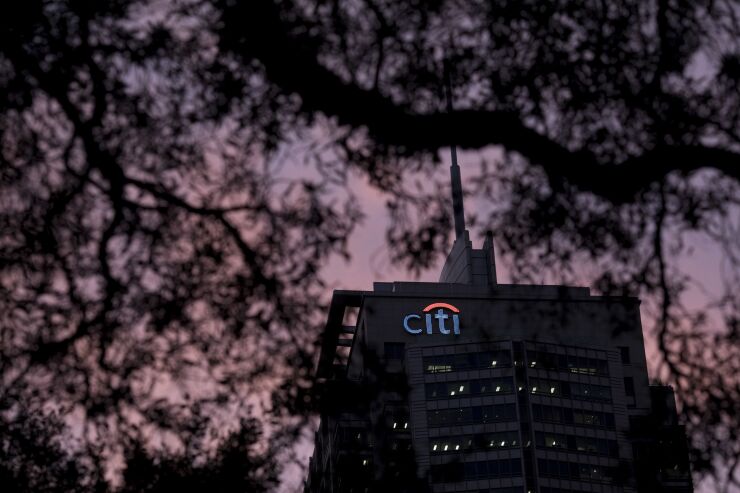Citigroup said it plans to take charges of $1.2 billion to $1.5 billion as it winds down retail banking operations in South Korea, part of Chief Executive Jane Fraser’s sweeping efforts to focus on more profitable businesses for the Wall Street giant.
The charges, for voluntary termination benefits and related costs, will weigh on Citigroup’s results for the rest of 2021 and throughout 2022, Citigroup said Monday in a regulatory filing. The New York-based company said earlier this year it
“Even with these charges, Citi believes the wind-down demonstrates continued progress towards Citi’s strategic refresh, and supports the financial and business objectives of its previously announced exits of the consumer businesses in 13 markets in Asia and EMEA,” the bank said in the filing.

Citigroup has said previously it expects the exits from the 13 consumer franchises to be accretive to capital and allow the bank to release roughly $7 billion of tangible common equity over time. About $2 billion of that amount is related to Citigroup’s plans in South Korea.
“We continue to have good conversations with potential buyers of our consumer businesses across the two regions,” Chief Financial Officer Mark Mason said in a statement Monday. “In terms of Korea, however, the economics of winding down the consumer business are much more attractive than continuing to run the business — even including the cost of the voluntary retirement program — given the reduced future operating costs and the release of roughly $2 billion of allocated tangible common equity over time.”





